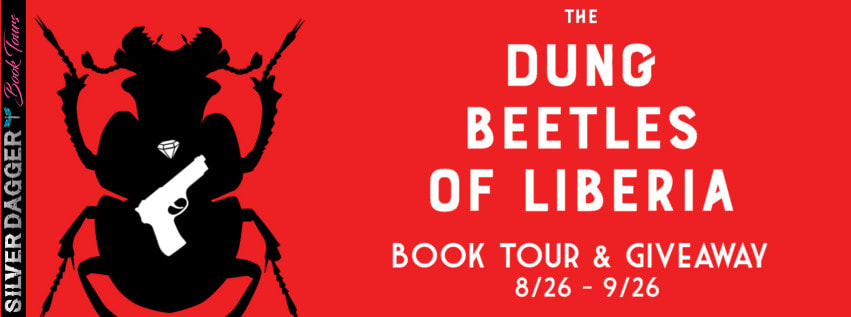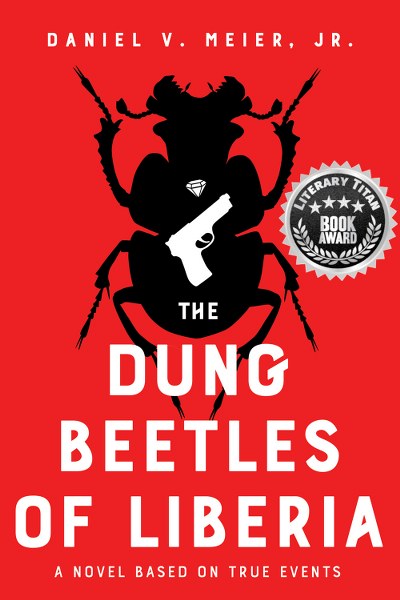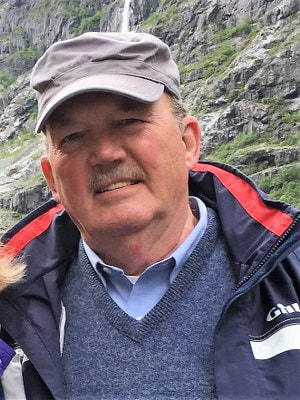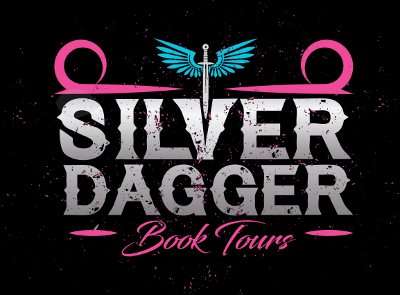'Dash' In Liberia
Historically, we, as Americans, have always had trouble with the idea of bribes; of slipping a bill under the table. as it were. to ‘grease the wheels’ of government…or of any establishment or business for that matter. And we generally don’t like to bargain for goods at stores.
In Liberia, however, bribery is the way of life. In the 60’s,
when the story of “The Dung Beetles of Liberia” takes place, the first words a
visitor would hear is “dash” or “my Saturday.” At the airport the immigration
officials require “dash” to get you beyond their desk. The customs officials
need their “Saturday” if you want to retain all of your bags and their
contents.These are not tips. If you don’t pay the dash, you don’t get the
service.If you want to park your car while you go to see a movie, a boy,
a “yana boy”, will come up to you and say, “Haloo ya, I watch yo car an you
help me small, oh. Jus fie cen.” Translation: I’ll watch your car while you’re
gone. Just five cents. Now, you could refuse to pay him, but would you want to
risk it?Motorists are routinely stopped for insignificant or invisible
infractions: a crooked license plate or a dirty windshield. The motorist not
only had to pay a fine, but then be asked, “I say, my fren, a small saturday
before you go, oh”The Ducor Palace Hotel was known as one of the most luxurious
and classiest hotels in Africa, but dash was necessary if you wanted a towel or
toilet paper.
Why is this so prevalent? Well, it’s obvious that the street boy
doesn’t have a job and he needs the money, but the policemen many times need
supplements to their income because they would rarely get paid on time. If
there was lower unemployment and steady paying jobs, would the dash persist.
Hard to say, but probably.
But all that is only the most superficial corruption.
The deeply entrenched, widespread government corruption that was
sapping the country of its economic strength was mind-boggling.
In blogs to come I will be showing that the guiltiest Liberians
were the Americo-Liberians, descendants of the
original freed slaved that sailed from America and settled in Africa in the
1800’s. They had replicated a society not unlike the Ante-bellum South;
yet in Liberia, they were the rich, living in mansions, and the native
Liberians were the 2nd class citizens.
Based
on the remarkable true account of a young American who landed in
Liberia in 1961.
Ken
Verrier is not happy, nor at peace. He is experiencing the turbulence
of Ishmael and the guilt of his brother's death. His sudden decision
to drop out of college and deal with his demons shocks his family,
his friends, and especially his girlfriend, soon to have been his
fiancee. His destination: Liberia - The richest country in Africa
both in monetary wealth and in natural resources.
Nothing
could have prepared Ken for the experiences he was about to live
through. He quickly realizes that he has arrived in a place where he
understands very little of what is considered normal, where the
dignity of life has little meaning, and where he can trust no
one.
Flying
into the interior bush as a transport pilot, Ken learns quickly. He
witnesses first-hand the disparate lives of the Liberian "Country
People" and the "Congo People" also known as
Americo-Liberians. These descendants of President Monroe's American
Colonization Policy that sent freed slaves back to Africa in the
1800's have set up a strict hierarchical society not unlike the
antebellum South.
Author
Dan Meier describes Ken's many escapades, spanning from horrifying to
whimsical, with engaging and fast-moving narrative that ultimately
describe a society upon which the wealthy are feeding and in which
the poor are being buried.
It's
a novel that will stay will you long after the last word has been
read.
A
retired Aviation Safety Inspector for the FAA, Daniel V. Meier, Jr.
has always had a passion for writing. During his college years, he
studied History at The University of North Carolina Wilmington and
American Literature at The University of Maryland Graduate School. In
1980 he was published by Leisure Books under the pen name of Vice
Daniels. He also worked briefly for the Washington Business Journal
as a journalist and has been a contributing writer/editor for several
aviation magazines.
Dan
and his wife live in Owings, Maryland, about twenty miles south of
Annapolis and when he's not writing, they spend their summers sailing
on the Chesapeake Bay.
Follow
the tour HERE
for exclusive excerpts, guest posts and a giveaway!










Very nice presentation!
ReplyDelete